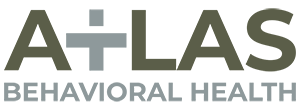Picking a drug rehab in Atlanta isn’t always easy. You want a safe place, with people who understand what you’re going through. Some centers focus on comfort, others on structure, but not all fit. Knowing what matters most can help you choose with confidence.
If you’ve ever asked yourself “Am I an addict?”, you’re not alone. Many in Atlanta have found the right support through places like Atlas Behavioral Health.
Identify the Right Level of Care
Atlas Behavioral Health offers different programs because not everyone heals the same way. Some people need 24/7 care in a facility (inpatient), while others do better living at home and attending therapy during the day (outpatient or IOP).
Think about your work, family, and daily routine. The right level of care should fit your life, not flip it upside down. If meth is involved in your recovery journey, knowing how to detox from meth safely could be your first important step.
Verify Credentials and Licensing
This step is often skipped, but it’s critical. Rehab centers in Georgia should be licensed by the state, and you should easily be able to ask for proof of this. Trustworthy programs don’t hide who they are.
A credible rehab should:
-
Be licensed by the Georgia Department of Community Health
-
Have certified therapists, addiction specialists, and medical staff
-
Show transparent treatment methods (no “secret formulas”)
-
Offer real support, not miracle promises
At some lower-quality centers, the entire team might just be peer coaches. That’s risky, especially if you’re dealing with something like synthetic THC use, which often needs medical oversight.
Check Insurance and Affordability
Rehab can cost a lot, but help should never feel out of reach. Some places accept private insurance, Medicaid, or offer payment plans. The cost depends on the type of program and how long you stay. Before choosing, ask about what’s covered and what’s not.
Don’t forget to ask about any hidden fees, too. Knowing the financial details early helps you plan without stress. You can also explore more affordable support through resources like Sober September, which shows that starting fresh doesn’t always require a high price tag.
Explore Location and Environment
Where a rehab is located can change how you feel during recovery. Some people heal better in peaceful, nature-focused spaces. Others feel safer and more motivated in a structured, city-based setting.
If you’re in Atlanta, you’re lucky to have both options nearby. A calm environment can make opening up feel easier, especially when you’re surrounded by staff who support every part of your journey through experiential therapies and compassionate care.
Prioritize Aftercare and Relapse Prevention
Treatment is the beginning, not the finish line. Strong rehab centers focus just as much on what comes after the program.
A strong aftercare plan should include:
-
Support groups or alumni check-ins
-
Ongoing therapy (weekly or monthly)
-
Relapse prevention skills
-
Sober living options if needed
Mid-recovery challenges can hit hard, especially around holidays or old triggers. These 7 strategies for navigating sobriety show how structured support helps people stay on track even in tough moments.
Testimonials & Success Stories
Nothing builds trust like real voices. When someone shares their recovery story, it doesn’t just inspire, it helps you believe healing is possible.
You don’t need a big leap to begin. For some, Dry January was the first small step that turned into a full journey. A short break from substances can spark major life change.
Why stories matter:
-
They break the feeling of being alone
-
They show what recovery actually looks like
-
They give hope, sometimes when nothing else does
How to Talk to a Loved One About Rehab
This is one of the hardest conversations you might ever have but also one of the most important. People struggling with addiction often don’t realize how serious things have become. You don’t need perfect words, just honesty and empathy.
Tips for the conversation:
-
Speak calmly, not during an argument
-
Use “I” statements (“I’m worried,” not “You’re ruining everything”)
-
Offer support, not ultimatums
-
Suggest help, don’t force it
If you’re seeing signs of alcohol misuse, this list of alcohol abuse signs can help you explain your concerns more clearly.
Comparing Rehab Options: Atlanta vs. Out-of-State
You don’t have to go far to recover. Many people assume traveling to a different state is better, but that’s not always true. Staying local has its own powerful benefits.
| Factor | Atlanta-Based Rehab | Out-of-State Rehab |
|---|---|---|
| Family Involvement | Easier to visit and participate | Limited or expensive travel |
| Legal or Work Obligations | Easier to manage | May cause delays or violations |
| Privacy & Fresh Start | Harder if triggers are nearby | Offers separation from local influences |
| Cost | Lower (no travel/housing expenses) | Often higher due to distance and lodging |
Many people choose Atlas Behavioral Health because it offers expert care without needing to leave home, and that makes a real difference for long-term success.
Common Mistakes to Avoid
When emotions are high, it’s easy to rush into the wrong program. Some centers might promise instant results or offer vague treatment plans, those are red flags.
Watch out for:
-
No transparency about pricing or treatment methods
-
Overpromising quick results
-
No mention of aftercare
-
No licensed professionals on staff
If you’re unsure whether the program fits your needs, learn how substances like Molly and Percocet differ. Education gives you power, and helps you avoid being misled.
Conclusion
Choosing a rehab in Atlanta is a life-changing decision. The right place gives you hope, structure, support, and a real path forward. Don’t pick based on pressure or advertising. Choose based on fit.
Your recovery doesn’t need to look like anyone else’s. What matters is that you take the first step. If you’re ready, the team at Atlas Behavioral Health is here to walk with you, every step of the way through our addiction treatment in Atlanta.





